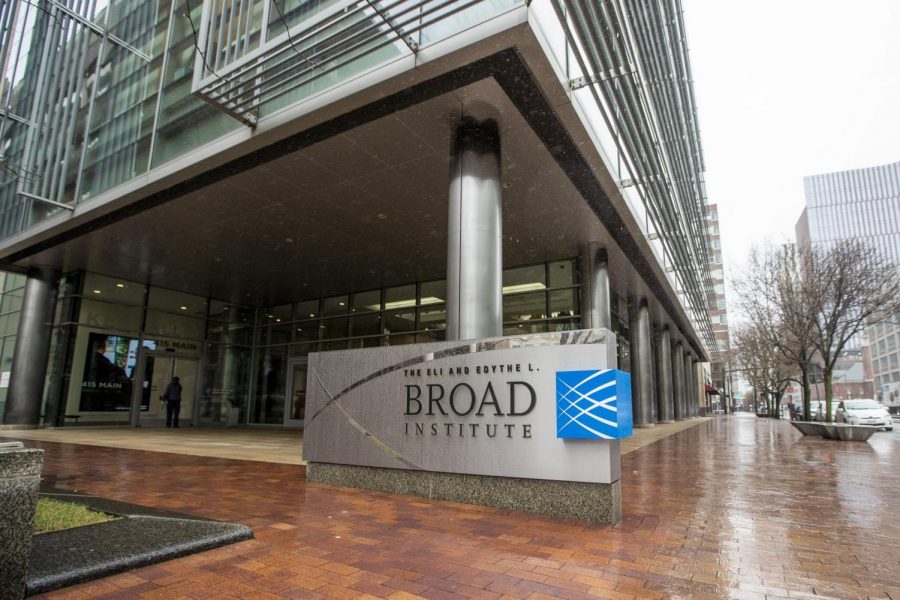Positively negative: so far so good
courtesy of Johns Hopkins University
The BROAD Institute in Cambridge, Mass.
With two rounds of testing nearly complete, Northern Vermont University has had no positive COVID-19 cases. Dean of Students Jonathan Davis said that as of Sept. 2, over 2,404 COVID-19 tests had been conducted between the Johnson and Lyndon campuses.
This number, according to Davis, accounts for nearly all students who will be physically present on campus in any capacity. He said that he was still working to identify a “small group” of students who may interface with the campuses but had not yet been tested.
NVU is conducting testing in partnership with the Broad Institute of the Massachusetts Institute of Technology and Harvard. Davis said that the university decided to use the Broad Institute for several reasons: partially because the institute allowed some flexibility in when testing could occur, partially because the method they use is “anecdotally less painful,” and partially because the lab guarantees results “within in a pretty rapid timeframe.”
Most tests have been returned within 24 hours, Davis said. The Vermont Department of Health’s website says that results from its pop-up test sites generally take two to four days. “So far it has met our expectations,” Davis said of the Broad Institute’s testing program. Davis did not have specific numbers for the accuracy of the Broad Institute’s tests, but he said that their accuracy is “equal or equivalent to other tests in comparison, so we feel confident that that is still an accurate portrayal of the health of the community as far as testing is concerned.”
Davis said that one student had been dismissed from the Johnson campus for violating the NVU Pledge and that several other reports are pending across both campuses. Dismissing a student from campus, Davis said, literally means just that — dismissing them from the physical campus. In the Johnson case, he said that the student moved fully online. “As I walk through both of the campuses, I’m really gratified to see the students wearing their masks, even outside,” Davis said. “Of course, there are a few exceptions where we need to step in and take some corrective action, but I feel like that’s pretty few and far between.”
Davis said he was pleased that there were no positive cases yet, but that he does not expect that to last forever. “While I feel good that we haven’t had any so far, I’m expecting one in the future,” Davis said. Should a positive case arise, Davis said that the person would receive a direct phone call notifying them of the result and directing their next steps. “And that’s when we will put into play other measures for isolation; instantly move them to a facility on campus that we have ready for that purpose.”
Davis said that the school has set aside “a couple of apartments” in the Campus Apartments as well as the entire Senators South building for quarantine purposes.
All test results, negative or positive, are going to Davis, the ordering physician and the Vermont Department of Health. “The department is acting as the “incident commander,” Davis said. “We will be working closely with them to provide the student with the proper instructions.” Davis said that part of the process, should a positive case arise, would be working with the Department of Health to communicate the situation to the community: “We would be preparing a statement for the community to let them know that we’ve had a positive case or cases.”
He said that he expects the community would be notified within a day.
Davis said that students should continue to follow all health guidelines, even once a negative test result has been obtained. “A negative test and a mask doesn’t mean you get to hug each-other … it’s all of that, with the distancing, always. We definitely need to educate more people about that, and we will,” Davis said. “It’s early still, it’s only the start of the second week of classes. It’s early. But, if we can continue this healthy trend, if we have to come back under the same circumstances in the spring, we could do it. At least so far. I’m guarded, but I’m very optimistic.”



